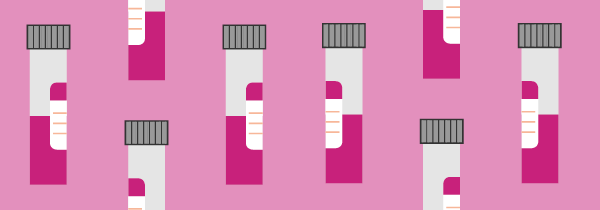What is gonorrhoea?
This is a common sexually transmitted infection (STI) caused by a type of bacteria (neisseria gonorrhoeae).
Gonorrhoea Infection usually occurs in the genitals, but can affect the throat, eyes and rectum (back passage). It can sometimes spread through the bloodstream causing more widespread infection.
How do you get gonorrhoea?
You can catch gonorrhoea by having any type of unprotected sexual contact including oral sex or by sharing sex toys. Gonorrhoea is not caught by kissing, even if one partner has the infection in his or her throat.
You or your partner could have picked up the infection from a previous partner without even knowing it. Men tend to have symptoms more often than women, but either sex can carry the infection without knowing about it. The more sexual partners you have, the greater the risk of infection.
Gonorrhoea can also be passed from an infected mother to her baby during childbirth. This usually causes an eye infection (conjunctivitis).
What are the symptoms of gonorrhoea?
Many people with gonorrhoea will not notice any symptoms. This means that infection can often go untreated for some time.
Even without early symptoms, gonorrhoea can still be passed on.
If you do notice the symptoms of gonorrhoea, they will usually show up between 1 to 14 days after coming into contact with the infection. In most cases, it is easier for men to recognise gonorrhoea than women and it is usually seen within a week.
Men
Signs may include;
- green or yellow fluid coming out of the ‘water passage’
- pain or a burning sensation when passing urine or a rash on the head of the penis
- discomfort and swelling of the testicles.
Women
About 3 in 4 women do not have any obvious symptoms of gonorrhoea and can take slightly longer to appear than in men.
Signs may include;
- increased discharge from the vagina
- pain in the abdomen
- pain passing urine
- bleeding in between periods, after sex, or have irregular or heavy periods.
Gonorrhoea can also infect the throat, anus or eyes. You may experience pain or discharge in these areas. Throat infections don’t usually cause any symptoms.
What can happen if I have had gonorrhoea?
If not detected and treated, gonorrhoea can have long-term effects on our health. It can reduce fertility in both men and women. It can and cause persistent abdominal pain in women and testicular pain in men.
Gonorrhoea can be passed between mother and child during delivery and cause an eye infection in the baby, so it’s important to get checked if you have symptoms in pregnancy or think you could have been in contact with gonorrhoea.
What if I am pregnant?
There is an increased risk of an ‘ectopic’ pregnancy (where the baby begins to grow outside the womb).
If you have a gonorrhoea infection during pregnancy it can result in giving birth to the baby early (premature birth).
Please contact the sexual health service as soon as possible if you are pregnant and worried that you might have been in contact with someone with gonorrhoea.
I’m worried I might have gonorrhoea what should I do?
If you think you or your partner may have gonorrhoea, it's important you get tested as soon as possible. Please contact the sexual health clinic to arrange this.
What is the treatment for gonorrhoea?
Treatment for gonorrhoea usually involves a single treatment with a combination of tablets and an injection. This is a very effective treatment for most people, but they should not have any sexual contact sex until tests show that the treatment has worked and their partner(s) have been treated.
Some gonorrhoea strains are becoming resistant to antibiotics. This can make it more difficult to treat.
How do you test for gonorrhoea?
Getting tested for gonorrhoea is simple and straightforward. If you have symptoms, the nurse or doctor will usually use a swab to collect samples of discharge from sites of the body where the infection might be.
A swab looks a bit like a cotton bud and collecting a sample only takes a few seconds and is not painful but may be a little uncomfortable for a moment. Men will also be asked to provide a urine sample.
The sexual health clinic can carry out rapid tests, when the doctor/nurse can look at the sample through a microscope and give you some test results straight away. Otherwise, you may have to wait up to 7 days for your results.
If there is a high chance that you have gonorrhoea, you may be given treatment before you get your results back. You will be offered treatment if your partner is found to have gonorrhoea.
It is important to avoid sex until you and your partner(s) have both finished gonorrhoea treatment to prevent reinfection and for 7 days after.
Tell the doctor or nurse if you are pregnant or think you might be, or if you are breastfeeding.
This may make a difference to the antibiotic you are given.
How do you avoid getting gonorrhoea?
The best way to prevent all STIs including gonorrhoea is to practise safer sex.
This means using a condom for vaginal or anal sex and a dental dam or condom for oral sex, or practicing safer sex alternatives.
For more information please see:

